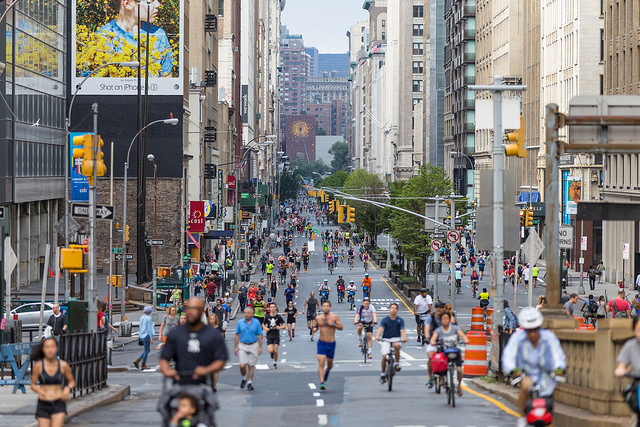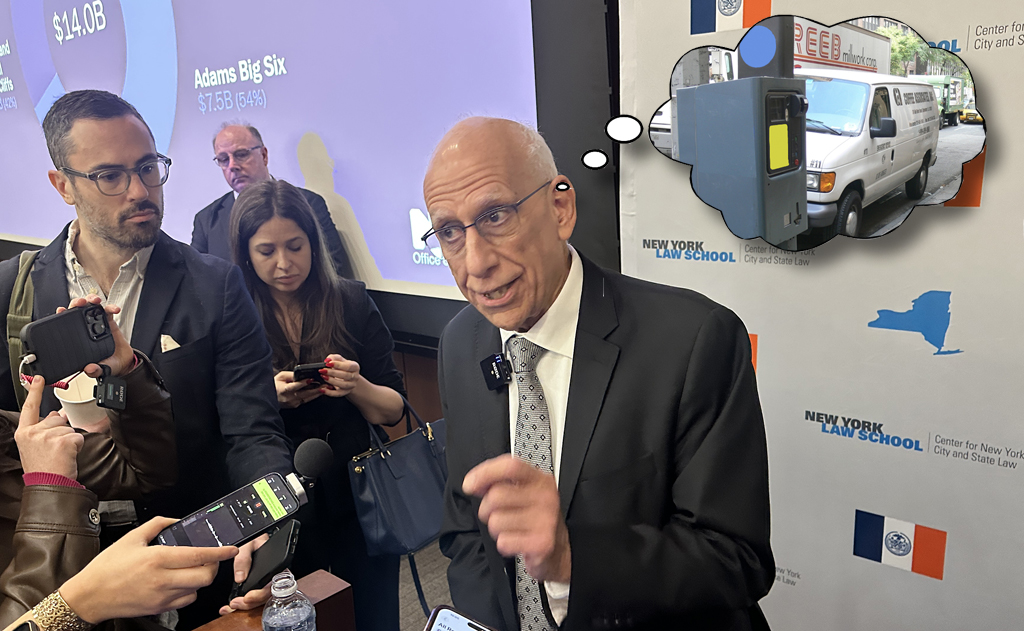The mayor has answered Gov. Cuomo's demand to ban cars on some streets to provide more open space during the coronavirus crisis — by shuttering a maximum of just 10 streets in a city with thousands of roadways, an announcement that was immediately seen as too little, too late.
On Tuesday, the mayor said his "pilot program" would consist of opening up two streets per borough for pedestrian use — but he gave no initial details on whether the "street" would be long roadways such as Broadway or just a short stretch of a random residential street, like 11th Street between Sixth and Seventh avenues in Park Slope.
The mayor said his plan was limited because of his concerns about enforcing it so that pedestrians don't use the newly granted space to congregate too closely.
"We wanted to strike a balance," he said during his Tuesday press conference. "So we decided on a very limited number on a pilot basis, certainly a number that the NYPD and other agencies could account for. The bottom line is we had to enforce it or it would be counter-productive. The streets will be chosen where they can have an impact. People need to exercise ... but where we can guarantee enforceability."
The announcement underwhelmed many activists.
“Mayor de Blasio has been unprepared and/or unwilling to take action throughout this entire COVID-19 crisis,” said Macartney Morris. “He was MIA for all of January and February when there was no corona virus testing being done in NYC. He was MIA in creating social distancing and work from home policies for city agencies. He was MIA in canceling large gatherings like Broadway and the St Patrick's Day Parade and closing schools. He's MIA in releasing New Yorkers from Riker's Island jail. So I'm not surprised that he's MIA in planning which or how many streets to close to cars and open to people so they can more safely walk and bike outside. The Mayor is MIA and New Yorkers will die because of it.”
Does he get it? Of course not. We need room to give each other wide berth all over the city. Most neighborhood parks are tiny. Our sidewalks are too narrow - give us room. @NYCMayor BE BOLD NOT BANAL. Surprise us w/something other than a half step.
— JimRockaway (@JimRockaway) March 24, 2020
And the mayor's Twitter troll, @goodnycmayor, mocked the plan, with his or her trademark sarcasm.
I’ve been misquoted on this. Two streets would be insulting. We will be opening streets based on a guideline of two streets WITHIN A TEN MINUTE WALK for every resident of every borough. Ultimately we want to get this to an open street within 4 blocks of every New Yorker. https://t.co/Tu9s8S4VWC
— Competent Mayor Bill de Blasio (Archive) (@GoodNYCMayor) March 24, 2020
Nontheless, Transportation Alternatives, which called for far more ambitious road safety improvements to reduce the threat of COVID-19, took a non-confrontational approach.
"We're glad to see the city has heard the call for more open streets, and we appreciate the mayor making this a priority," said the group's Executive Director Danny Harris. "We're eager to learn more details, and expect this to be just a first step."






